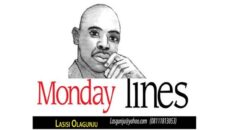Despite the lull in economic activities due to lack of clear policy direction and the delisting of Nigerian bonds by JP Morgan, the Central Bank and financial experts insist that the economy remains attractive to foreign investors
To many Nigerians, the nation’s economy is in dire straits owing to lack of clear economic policies and direction four months into the administration of President Muhammadu Buhari. The fact that the President is yet to appoint his cabinet, and without a minister of finance to steer the economy away from the vagaries of the oil price in the international market, have heightened fears over the economy and welfare of Nigerians.
Click here to download our magazines
Recent remarks by Godwin Emefiele, governor of the Central Bank of Nigeria, CBN, that the economy was fragile and not insulated from a recession if certain proactive steps were not taken have also heightened the fears over the economy. For instance, the CBN boss noted that the country’s gross domestic product, GDP, recorded slow growth in the second quarter of 2015, making it the second consecutive less-than-expected performance for the current fiscal year. According to NBS, real GDP grew by 2.35 per cent in the second quarter of 2015, a significant decrease when compared with the 3.96 per cent and 6.54 per cent in the preceding quarter and corresponding period of 2014, respectively. “The impact of non-payment of salaries at the state and local government levels had led to reduction on consumer demand. As the year-on-year headline inflation continued to trend upwards, demand pressure in the foreign exchange market remained significant as oil prices continued to decline,” he stated.
As a result of these developments, Emefiele warned that there are indications that some of the banking sector performance indicators could be stressed if these conditions worsen further. Specifically, he expressed worry that liquidity withdrawals following the implementation of the Treasury Single Account, TSA, and elongation of the tenure of state government’s loans as well as loans to the oil and gas sectors could aggravate liquidity conditions in banks and impair their financial intermediation role. These, he noted, could affect economic growth, unless some actions were immediately taken to ease liquidity conditions in the markets.
Experts have also cautioned the CBN not to further devalue the naira by over 15 per cent as suggested by JP Morgan, a globally acclaimed financial institution. Henry Boyo, an economist, stated that such move would impact negatively on the real sector and challenge the prospect of inclusive economic growth. According to him, the weaker naira exchange rate of over 15 per cent will increase industrial production cost and drive inflation beyond 10 per cent. That is not all. He adds: “prices of locally produced goods will generally also become uncompetitive, fuel prices will rise, while consumer demand will also contract to reduce capital investment and deepen poverty nationwide.” As far as he is concerned, the huge naira liquidity surfeit, which CBN readily acknowledges in the system should be adequate to mop up future issuance of federal government bonds and forestall the usual economic dislocations precipitated by the hot money flows of foreign portfolio investors…
Follow Us on Social Media



 WhatsApp us
WhatsApp us